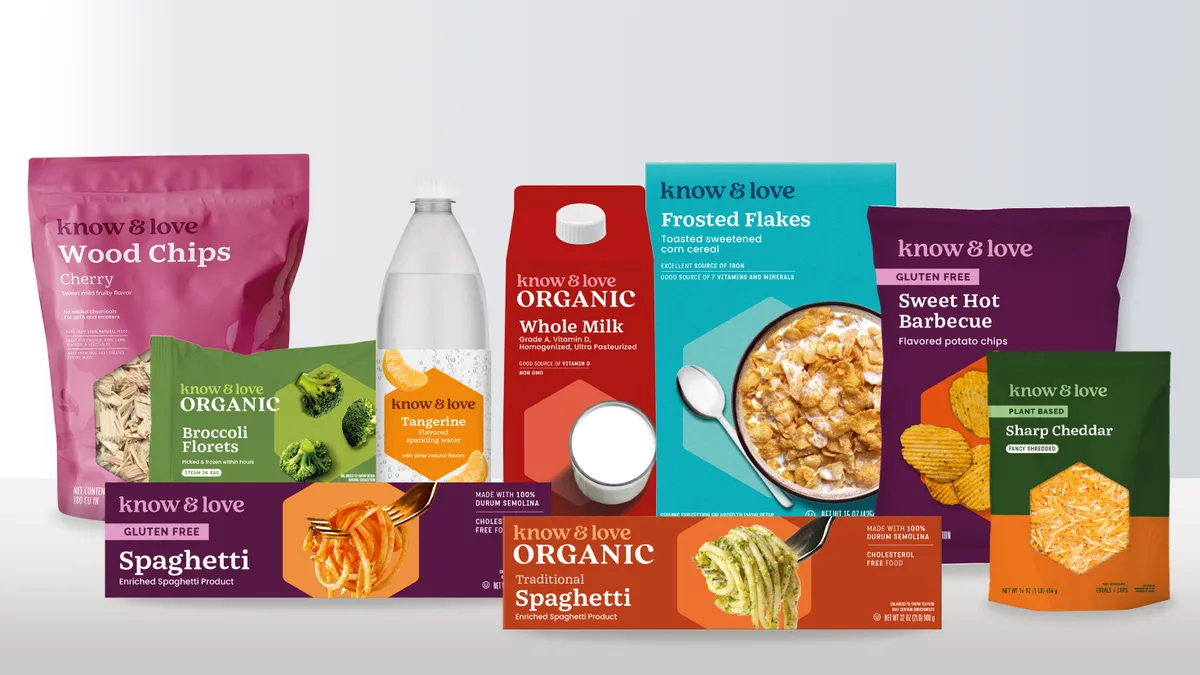Dive Brief:
- Fifty-four percent of surveyed shoppers said they plan to purchase much or somewhat more store brands in the future, compared to 26% who said the same for name brands, according to a new report from FMI – The Food Industry Association.
- Only 4% said they anticipate buying less private labels, while 24% said the same for name brands.
- Consumers’ future purchasing plans vary by category, FMI said, noting that “not all categories will share equally in the gains.”
Dive Insight:
More than two-thirds (68%) of respondents who are buying more private brand items said they are doing so because of price — but price isn’t the sole reason for the uptick in private brand interest.
Among consumers who said they plan to buy more private brands, 61% said they would do so because store brands offer better value, followed by better price (60%), taste (51%) and quality (47%).
Ninety percent of shoppers said they would be somewhat or very likely to continue buying private brands even if inflation becomes less of a factor.
“It’s one thing for shoppers to buy more private brands in an inflationary environment, but it’s another thing to continue purchasing store brands if those conditions change. Notably, shoppers are reporting they plan to stick with private brands in the future regardless of the direction of inflation,” the report said.
Fresh eggs is a top performing category for private brands
The top categories in which shoppers plan to purchase more private brands in the next 12 months include paper products (43%), salty snacks (36%), packaged breads (36%), and milk and non-dairy substitutes (35%), per the report.
Fresh bakery and milk or non-dairy substitutes are the “private brand stars,” followed by non-prescription drugs, paper products, and fresh prepared meals, salads or sandwiches — all of which accounted for large shares of store brand purchases, according to the findings.
FMI noted that it has seen a shift in the characteristics of its “frequent private brand shoppers.” Those shoppers previously skewed female, were more likely to be millennials, were more likely to live in households with kids and were more likely to have an income of less than $50,000. But this year’s research found that the demographics of frequent private brand shoppers were more similar to those of the broader population, underscoring that private brands are an “increasingly ubiquitous choice.”
Private brands are influencing where people choose to shop. Fifty-three percent of people surveyed in 2023 said store brands are very or extremely important in their choice of store, up from 46% who said the same in 2019.
The report was based on a survey of 1,039 U.S. grocery shoppers between July 14 and July 21, 2023, as well as private brand data from Circana.

















